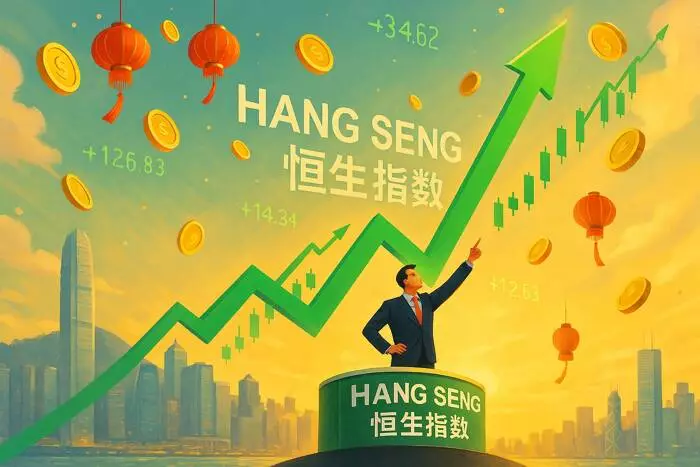Asian equity markets recently showcased a blend of optimism and caution, largely influenced by ongoing debt discussions, central banking strategies, and complex trade dynamics. Within this diverse landscape, the Hang Seng Index stood out by registering an impressive gain of 1.10% in the week ending May 23. This marked its sixth consecutive weekly improvement, a notable response to the persistent global economic pressures facing investors. Yet, despite this commendable ascent, a prevailing risk-off sentiment across international markets seemed to cap further gains, signaling that investor confidence remains fragile.
Automakers on the Rise
Fueling the gains in the Hang Seng Index were two automotive giants, BYD Company Ltd. and Geely Automobile Holdings Ltd. Both companies demonstrated robust performance, with BYD soaring 7.14% and Geely not far behind, gaining 2.84%. Their advancements underscore a resilience in the automotive sector, often regarded as a bellwether for broader economic health. This uptick may be attributed to a strong push for electric vehicles (EVs) and a recovery in consumer spending, even as uncertainties loom. The success of these companies, particularly BYD, illustrates growing investor faith in the transition to sustainable transportation, despite the complex backdrop of economic volatility.
Technology Sector Struggles
Conversely, the technology sector faced turbulent waters, prominently illustrated by Alibaba’s disheartening performance. The tech behemoth’s 3.73% decline, attributed to underwhelming fourth-quarter FY25 earnings, reflects broader vulnerabilities within the sector. Unlike the automotive segment, which is finding new growth avenues, tech stocks appear ensnared in a web of economic foreboding. This divergence highlights a critical narrative: while certain segments adapt and flourish amidst adversity, others remain mired in challenges that erode investor confidence. This sharp sell-off in tech could signal a troubling trend, suggesting that the sector may need to recalibrate its strategies in the wake of shifting market demands.
Mainland China’s Struggles
The struggle extends beyond Hong Kong’s markets, as mainland Chinese equities displayed underwhelming performances, with the CSI 300 and Shanghai Composite Index slipping by 0.18% and 0.57%, respectively. This decline echoes investor concerns about the economic outlook, illustrating how macroeconomic factors weigh heavily on sentiment. China’s economy, known for its rapid growth, now grapples with uncertainties that threaten to impede its momentum. Such worries have implications not only for local investors but also for global markets that remain entwined with China’s economic fate.
Commodities on a Rollercoaster
While equities fluctuated, commodities painted a vibrant yet chaotic picture. Gold prices surged by 4.84%, closing at a staggering $3,356.66 as investors flocked to safe-haven assets amid escalating trade tensions and persisting concerns about US debt. This movement underscores gold’s enduring appeal in times of uncertainty while reinforcing its status as a financial bastion. Conversely, WTI crude oil prices dipped by 0.53% due to oversupply worries, reflecting how global energy dynamics feed into market sentiment. Iron ore prices also faced headwinds, descending by 1.44% as China’s economic indicators clouded demand prospects.
Expectations for the Week Ahead
Looking ahead, the upcoming week is pivotal for market participants as critical events on the horizon could sway investor sentiment dramatically. Key figures from the US, Australia, and Japan will be closely monitored, with particular attention to economic data that informs policy decisions from regional central banks. The Reserve Bank of Australia’s (RBA) next steps will likely hinge on new consumer price index (CPI) and retail sales data, which could ultimately dictate the trajectory of Aussie stocks. In Japan, labor and retail metrics will guide currency movement, while any shifts in inflation expectations could impact the Bank of Japan’s monetary policy outlook.
As we navigate this multifaceted economic landscape, the intertwining of trade discussions and monetary policy generates a charged environment for equities, particularly for the Hang Seng Index. Investors must remain vigilant, decoding the relationship between fluctuating economic indicators, central bank actions, and the ever-evolving global trade arena.

